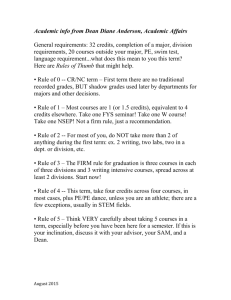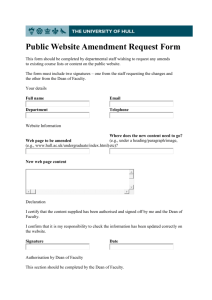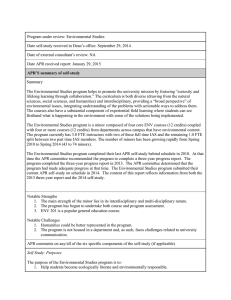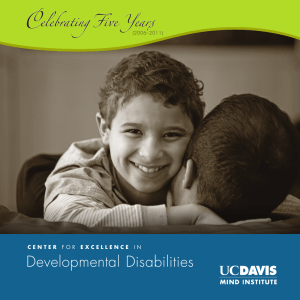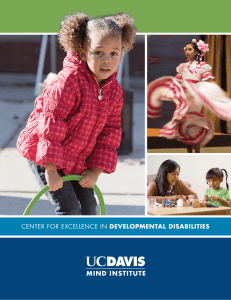Stephanie Pfirman
advertisement
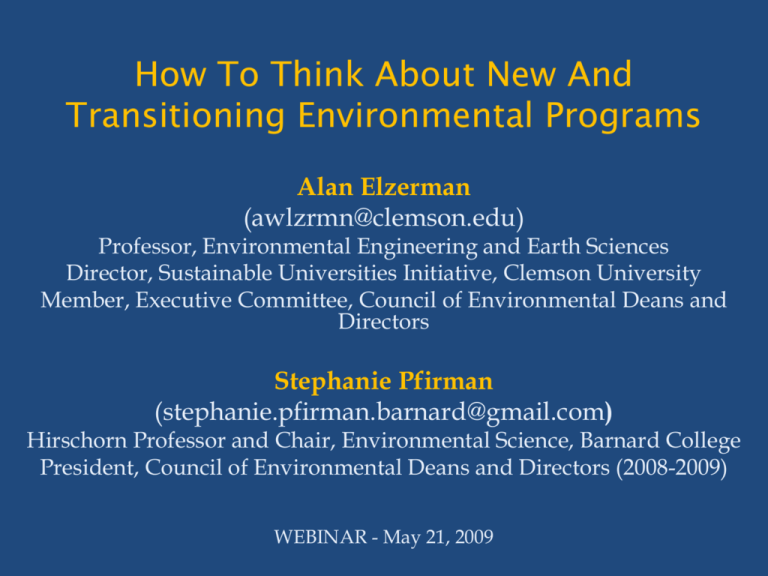
How To Think About New And Transitioning Environmental Programs Alan Elzerman (awlzrmn@clemson.edu) Professor, Environmental Engineering and Earth Sciences Director, Sustainable Universities Initiative, Clemson University Member, Executive Committee, Council of Environmental Deans and Directors Stephanie Pfirman (stephanie.pfirman.barnard@gmail.com) Hirschorn Professor and Chair, Environmental Science, Barnard College President, Council of Environmental Deans and Directors (2008-2009) WEBINAR - May 21, 2009 GOALS 1. Help those starting or making revisions to programs. Why is it so complicated? 2. Provide introduction to helpful information available from CEDD and its members. 3. Help identify issues and success factors for environmental and sustainability programs. 4. Focus on critical decisions. 5. Promote learning from interaction among participants. Caveats • Important to recognize there is no prescription (Stephanie and Alan are here to lead a discussion.) • Each school has its own history and local factors that must be accounted for to gain success. • We can find useful points to share and discussions can stimulate insights and improvements. Who Is Here? (briefly, please!) • Name, program name (if existing), school and your type of involvement (e.g.- faculty member, department chair, head of a committee) • New program, major revision or…? • Why have you joined us today? What do you hope to accomplish? • Answers: – Revise and update – Create value added What Good is Your Program? • Why do you think your program should exist? • What will be accomplished that otherwise would not happen? • And, other questions you will get……. • Answers: – What good is env studies vs. env science – Develop ID competence – Competence in solving complex problems Focused Discussion - 1 • What is the biggest issue for you, or what do you see as the biggest hurdle for your program? • Answers: – Team teaching credit – Involving specialists from other depts – Challenge where to put your time, where you fit especially when programs cross schools Role Play • Pretend you are the Dean you report to for this activity (or Provost, or whoever it is). • You, as Dean, want to promote the environmental program and see it grow and be successful. • What do you, as Dean, say to the person in your position, who is responsible for the program, to encourage and enable them and/or provide them with what they need? (Yes, this is wishful thinking. Possibility---think of what one thing do you wish that person would say to you?) Answers: We’ll support you and will recognize what you do Focused Discussion - 2 • • • • The importance of the student experience Identification of educational outcomes These are the keys! How do you assess and improve the student experience and educational outcomes? • Answers: – How to start this conversation among faculty? To get their buy in to this? Some get it and others don’t – Establish hierarchy of outcomes from mission down to specific endeavors – Having a capstone experience that’s an immersion really helps to drive everything back – see what students could accomplish and what they couldn’t really motivated the faculty to strengthen elements in their lower level classes -- a group took the time to review this and present it to the others Critical Issue Realistically considering faculty participation (who, doing what, why, how, to what end, with what compensation and rewards, and with what evaluation procedures?) Focused Discussion - 3 • Instructors for courses: – How do you attract them? – Which departments? – How do you pay them? – How do you reward them in other ways? – How do you get them to interact with students? – How do they participate in course and curriculum development and program administration? Focused Discussion - 4 • The importance of a feeling of “community” for the faculty, students and staff— attention to affective and cognitive factors – Seminars – Team teaching (perhaps as an initial investment) – Group meetings – Residential arrangements – Social events (game night, spaghetti dinner, barbeque) – Field trips – Participation in curriculum, program decisions – Inclusiveness – Fair evaluations, tenure and promotion Additional ideas: Learning communities? Taking an intro bio course and doing a learning community between bio and math – but time consuming Stidemtogether as 1st years and then don’t see each other again until they’re seniors Focused Discussion - 5 • Alternative administrative structures Ideas: Department Majors Minors Concentrations Programs of study Focused Discussion - 6 • Curricula Issues • Oh my! Answers: Not straight engineering Not straight agriculture Disciplinary origins needed plus the breadth of other experience for employers, graduate school Program of study/minor/certificate plus major? = allows development of expertise/acknowledgement that student experienced coherent body of knowledge, faculty across departments have to come together to agree on what would make sense … issues of double-counting Focused Discussion - 7 What might CEDD do for you? 1. Documents on a website? 2. A list serve, blog or something for interpersonal exchanges? 3. Periodic conference calls with resource people and others who are looking for tips? 4. A program to connect with a "mentor/buddy" from an established program? 5. People who would be willing to make campus consulting visits? 6. All of the above? None of the above? Something else? Wrap-Up • What would success look like? Answers: If we are successful -Increase number of students in program Students placed well in grad schools/careers Quality of env management and decision-making would be more science-based and holistic • What do you see as “take-home messages” from today? Answers: Good to know it’s not an easy process Other people have similar issues and are tackling similar problems Good to hear what is in the planning stages at other places, helps frame what they do at their own institution Nice to have ppt as background Good to have links to CEDD resources Webex worked well, and questions worked well too





